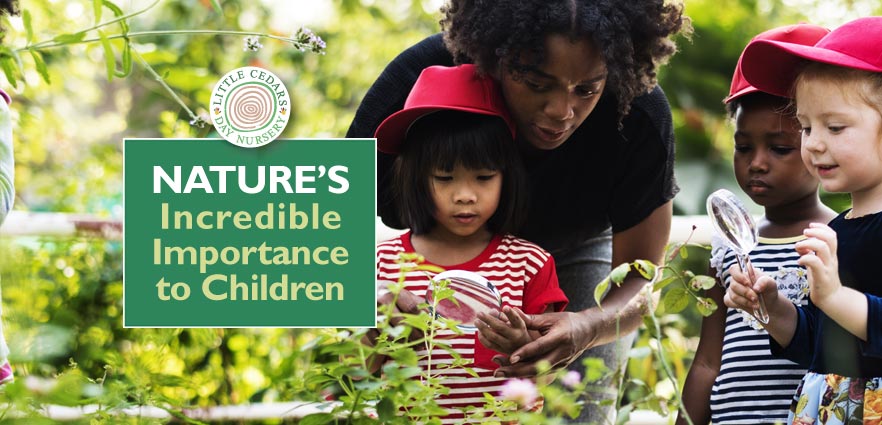
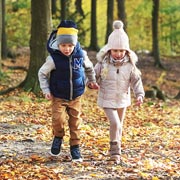 It’s amazing how much nature benefits children, particularly in their early years when they’re finding out about the world around them — and also learning about themselves. There have been many studies into the importance of nature, to youngsters in particular, and the studies all reach a similar conclusion — nature is incredibly important and beneficial to children. Today we’ll explore the topic and learn why children should regularly access the natural world.
It’s amazing how much nature benefits children, particularly in their early years when they’re finding out about the world around them — and also learning about themselves. There have been many studies into the importance of nature, to youngsters in particular, and the studies all reach a similar conclusion — nature is incredibly important and beneficial to children. Today we’ll explore the topic and learn why children should regularly access the natural world.
Multiple studies show that nature is incredibly important and beneficial to children.
Nature’s Benefits for Children, Particularly in their Early Years
So, let’s take a look at some of the many benefits of nature to children, especially in their early years.
Time spent in nature, even for just a short time, has been shown to restore children’s cognitive abilities, improve attention spans and boost mental resilience. Studies even showed this to be the case when just a view of nature was available from the classroom. For this reason, experts have suggested that education settings will benefit children more if they are made into more ‘green’ environments in terms of there being flowers, grass and trees nearby.
Another study showed that test results from children were improved after they’d spent time in a woodland environment. Improvements were seen in both accuracy and speed of answers. That’s an amazing result, when you think about it!
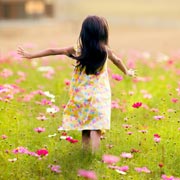 Stress is also reduced on both a mental and physiological level through exposure to a natural environment. In studies, stress hormone and blood pressure levels both improved after exposure to nature, helping children both physically and emotionally. Nature seems to be a great way to recharge children’s batteries and lower stress and anxiety, as well as improving attention, engagement and academic performance. That includes improvements in important skills like reading, writing and mathematics.
Stress is also reduced on both a mental and physiological level through exposure to a natural environment. In studies, stress hormone and blood pressure levels both improved after exposure to nature, helping children both physically and emotionally. Nature seems to be a great way to recharge children’s batteries and lower stress and anxiety, as well as improving attention, engagement and academic performance. That includes improvements in important skills like reading, writing and mathematics.
In a further study from the U.S. in 2019, children growing up around more natural surroundings were — incredibly — found to have improved earnings potential. They even put a figure on it, being almost $30k more in earnings over the course of their lifetimes, simply because they grew up closer to nature.
The above is just the tip of the iceberg, though. The list of additional benefits to children, associated with being around nature, includes:
- Improvements in general fitness, motor skills (both fine and gross) and coordination. Children are usually extremely active and engaged when out in nature and such exercise is very good for them.
- A better quality of sleep after spending time out in nature.
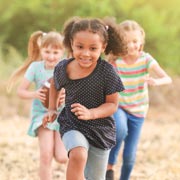 Improved social skills and even wider circles of friends due to the opportunities offered through outdoor play and adventure.
Improved social skills and even wider circles of friends due to the opportunities offered through outdoor play and adventure.- Playing out in and around nature will often also help children discover new skills like leadership, problem-solving, teamwork and even risk-assessment.
- Creativity also gets a massive boost from nature as children experience different activities, objects, materials and opportunities to allow let their imaginations run riot.
- Nature is also a feast for the senses, so sensory opportunities are enormous in such environments. These can teach children so much, but should obviously only be undertaken under close adult supervision.
- Children’s feelings of empathy are also often enhanced through contact with nature. With all of the flora and fauna around, children will soon learn to care more about the wellbeing of other living things.
- Nature can also encourage children to think on a much deeper level then their usual play allows. For example, they may start to think about about creation, life, their place in the world, their impact on the planet and ultimately about what’s really important.
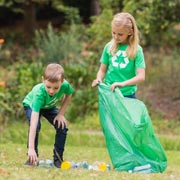 The new skills, knowledge and freedom that nature gives children also helps them to become more self-confident and independent individuals.
The new skills, knowledge and freedom that nature gives children also helps them to become more self-confident and independent individuals.- Children who spend time around nature also often go on to have greener lifestyles, to protect the planet that they’ve come to appreciate.
- Many also go on to have lifelong appreciations for the Great Outdoors, its incredible array of environments, plants, trees, insects and animals.
Nature is a great gift and children should be given every opportunity to explore it, learn from it and enjoy everything it has to offer, both spiritually and physically.
Nature for Children in Streatham & Tooting
Little Cedars Nursery has some wonderful facilities for the children. These include an area where they can grow vegetables and also a small animal enclosure, each representing a great way to introduce children to nature on a smaller scale.
We’re also fortunate to be located just a stone’s throw away from large open spaces including Streatham Common, Tooting Common and Tooting Bec Common.
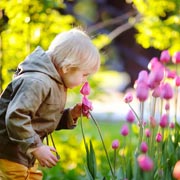 Even in built-up cities like London, immersion in nature is possible via gardens, parks, commons or, if you’re lucky to have them near you, nature reserves and nature gardens. There are many of these dotted around London, including several not far from our Streatham nursery. So, whether they visit with parents, carers or as part of an outing organised by Little Cedars Nursery, children can benefit from everything that nature has to offer, virtually on their doorstep. With everything it has to offer them, nature is thoroughly recommended for children (and adults) of all ages.
Even in built-up cities like London, immersion in nature is possible via gardens, parks, commons or, if you’re lucky to have them near you, nature reserves and nature gardens. There are many of these dotted around London, including several not far from our Streatham nursery. So, whether they visit with parents, carers or as part of an outing organised by Little Cedars Nursery, children can benefit from everything that nature has to offer, virtually on their doorstep. With everything it has to offer them, nature is thoroughly recommended for children (and adults) of all ages.
Looking for Good Nurseries or Pre-schools in Streatham?
Little Cedars is a wonderful nursery & pre-school in Streatham, offering high quality childcare services near Furzedown, Tooting, Balham, Norbury & Colliers Wood

 If you’re searching for the best nurseries or pre-schools in Streatham, do take a look at Little Cedars Nursery. We’d love to show you and your child around and offer a high quality childcare service for babies and children aged up to five. The nursery is very near Streatham Hill, Streatham Park, Streatham Common and Furzedown. It is also close to Tooting, Tooting Bec, Tooting Broadway, Tooting Common, Balham, Norbury and Colliers Wood, so may be convenient if you live or work in any of those locations.
If you’re searching for the best nurseries or pre-schools in Streatham, do take a look at Little Cedars Nursery. We’d love to show you and your child around and offer a high quality childcare service for babies and children aged up to five. The nursery is very near Streatham Hill, Streatham Park, Streatham Common and Furzedown. It is also close to Tooting, Tooting Bec, Tooting Broadway, Tooting Common, Balham, Norbury and Colliers Wood, so may be convenient if you live or work in any of those locations.
Please choose your preferred contact method below to apply for a nursery place, book a tour or ask any questions — we’ll be very happy to help:

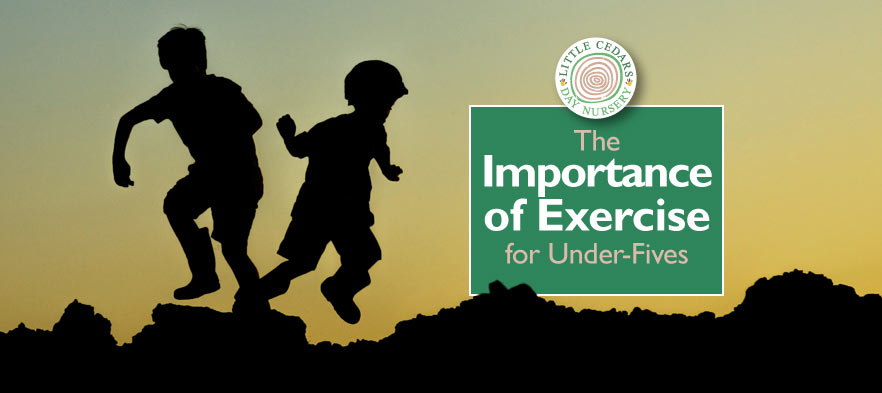
 What are the Recommendations for Early Years Exercise?
What are the Recommendations for Early Years Exercise?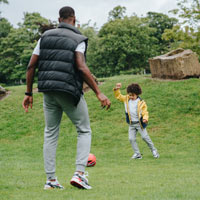 What are the Benefits of Early Years Exercise?
What are the Benefits of Early Years Exercise?
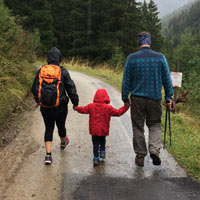 How Parents can Help
How Parents can Help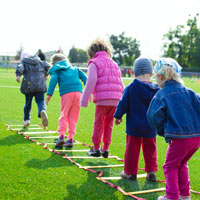 Active Play & Exercise at Little Cedars Day Nursery, Streatham
Active Play & Exercise at Little Cedars Day Nursery, Streatham